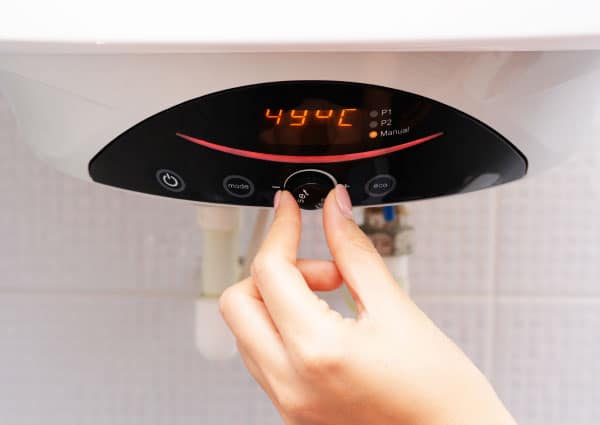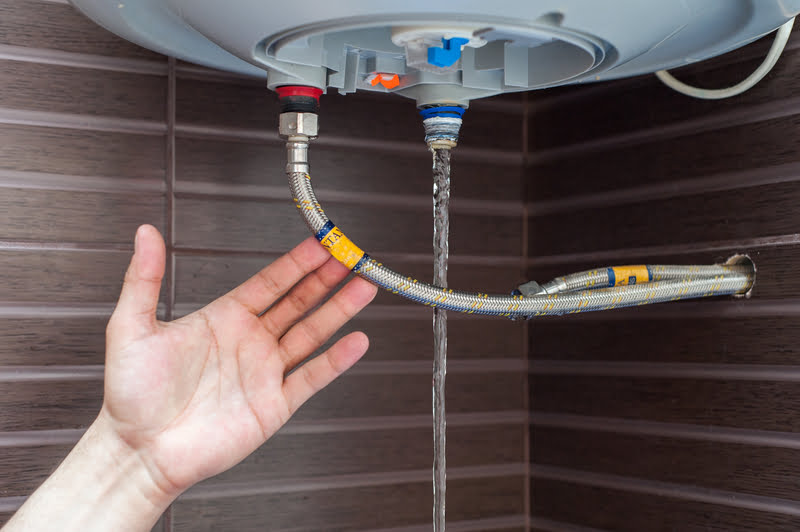Ways to Cope with the Major Hot Water Heater Urgencies
Ways to Cope with the Major Hot Water Heater Urgencies
Blog Article
This great article following next pertaining to Is Your Water Heater Leaking? is highly remarkable. Don't skip it.

A hot water heater is among one of the most essential fundamental devices that can be found in a home. With hot water heater, you don't require to experience the tension of home heating water by hand every time there is a requirement to wash, do the laundry, or the dishes. However, there is constantly an opportunity that your hot water heater would certainly break down just like the majority of mechanical devices.
It is very important to note any little breakdown as well as tackle it rapidly prior to points get out of hand. The majority of times, your water heater begins to malfunction when there is a build-up of sediments as a result of continuous usage. As a safety measure, periodic flushing of your hot water heater is recommended to stop sediment accumulation and avoid useful failure.
Typical hot water heater emergency situations and exactly how to take care of them
Dripping hot water heater storage tank.
A leaking storage tank could be an indication of corrosion. It might trigger damage to the floor, wall surface and electrical devices around it. You might also be at risk of having your apartment or condo flooded. In this situation, you must shut off your hot water heater, allow it to cool down, and also thoroughly search for the resource of the problem. At times, all you require to do is to tighten up a couple of screws or pipeline connections in cases of minor leakages. But if this doesn't function and also the leakage continues, you might require to employ the services of a specialist for an appropriate replacement.
Rising and fall water temperature level.
Your water heating system might begin creating water of different temperatures typically ice chilly or scalding warm. There could be a need to replace either the thermostat or the home heating unit of your water heating system.
Too little warm water
Managing an inadequate supply of hot water can be aggravating. It might be that the water heater can't sustain the warm water demand for your house. To manage this trouble, you could attempt to change your heating unit's temperature level dial and also await a couple of mins. You can ask for the aid of a professional plumber if the trouble lingers. Conversely, you can update your water heater to one with a larger capacity.
Stained or odiferous water
When this happens, you need to recognize if the problem is from the water or the storage tank resource. You are particular that it is your water heater that is malfunctioning if there is no amusing smell when you run chilly water. The smelly water can be brought on by rust or the build-up of microorganisms or sediments in the water heater container. You can attempt flushing out your tank or changing the anode if the trouble persists when you see this. The feature of the anode is to clean germs from your storage tank. Given that the anode rod replacement calls for a detailed knowledge of your water heating unit, you will certainly require the help of a specialist.
Verdict
Some property owners neglect little caution and also minor faults in their water heater unit. This only results in additional damage and a feasible total failure of your appliance. You must deal with your water heater mistakes as soon as they come near stay clear of even more costs as well as unneeded emergency difficulties.
With water heating units, you do not require to go through the tension of heating water by hand every time there is a demand to take a bath, do the laundry, or the meals. Your water heater might start creating water of various temperature levels generally ice cold or hot hot. It may be that the water heater can not sustain the warm water demand for your house. If there is no amusing odor when you run cold water, then you are specific that it is your water heating unit that is malfunctioning. The odiferous water can be created by rust or the build-up of microorganisms or sediments in the water heating unit container.
Why Is My Water Heater Leaking?
When a water heater bursts in a home, it is a shocking event, not to mention a messy one, and it could potentially cause a lot of expensive damage. If your hot water heater burst, you’re probably wondering why this happens and what to do next.
In general, the basic reason why hot water heaters burst is that there is corrosion within the tank, which can lead to the tank bursting at its seams. Unfortunately, there are several possible underlying causes that can contribute to water heater explosions, and it’s not always apparent which one is the culprit.
Sometimes there are risk factors or warning signs that could indicate a water heater explosion is imminent, but not always. In order to understand the risk factors that could contribute to a water heater exploding, it’s important first to understand the type of water heater that you have in your home.
What Are The Common Causes of Water Heater Leaks?
In general, it's a good idea to call a emergency plumbing company if you have any questions about the cause of your water heater leak. The most frequent reasons why water heaters leak are:
Drain valve
The drain valve is used to empty the tank during maintenance visits and replacements by plumbers and homeowners. The drain valve is also utilized by homeowners when cleaning the tank is required. Over time, the valve becomes loose, allowing water to flow through. Leaks from the bottom of the valve, on the other hand, suggest that the component isn't waterproof. This situation calls for the installation of a new drain valve. Homeowners may replace this themselves, but it's better to get advice from a professional plumber before you do so.
Too much pressure
Water heaters are affected by naturally occurring water pressure, just like any other plumbing component. The hot water that generates steam and fills the vacant space causes pressure in water heaters. When the steam has no where to go, the pressure becomes too high. Any crack in the heater allows water to escape, relieving some of the pressure. When the water temperature is set too high or when water enters the system at large pressures, the heater's pressure rises.

I ran across that page on The Importance of Water Heater Maintenance while exploring the search engines. So long as you enjoyed our post plz be sure to pass it around. Thanks a bunch for your time. Visit again soon.
Expertise at your service. Report this page